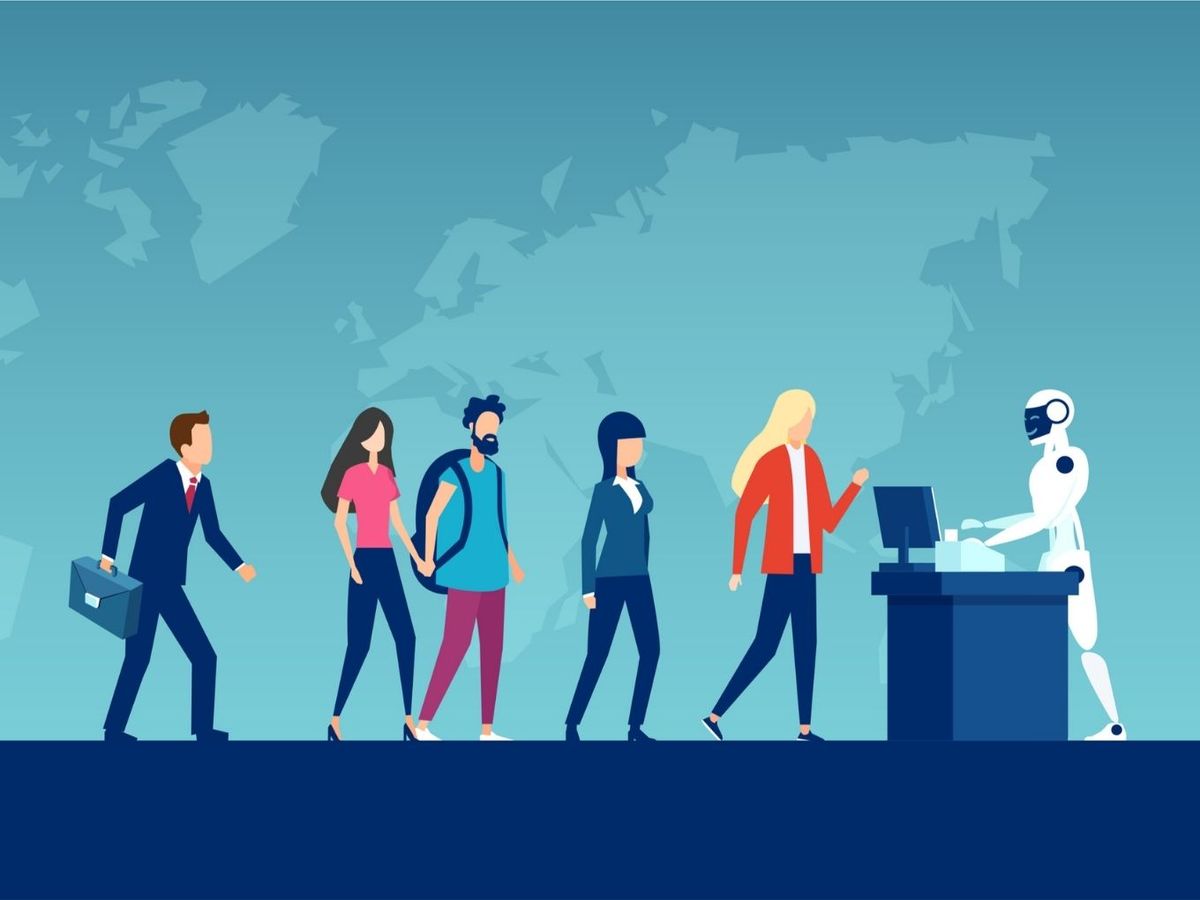Artificial Intelligence in Human Resources: Revolutionizing Talent Acquisition

In today's fast-paced business landscape, human resources (HR) departments are continually seeking innovative ways to streamline their processes and enhance talent acquisition. Enter the realm of Artificial Intelligence (AI), a technological marvel that has rapidly transformed various industries. In this article, we'll delve into how AI is revolutionizing HR practices, particularly in the realm of talent acquisition.
Table of Contents
- Introduction to AI in HR
- The Power of AI-Driven Candidate Sourcing
- Screening and Shortlisting with AI
- AI-Powered Candidate Assessment
- Personalized Candidate Experiences
- Streamlining Interview Processes
- Reducing Bias in Recruitment
- Predictive Analytics for Talent Forecasting
- Onboarding and Training Enhancement
- Employee Retention and AI
- HR Analytics for Data-Driven Decisions
- Legal and Ethical Considerations
- Challenges and Limitations of AI in HR
- Preparing HR Professionals for the AI Era
- The Future of AI in HR
Introduction to AI in HR
The integration of Artificial Intelligence into HR practices has ushered in a new era of efficiency and effectiveness. Traditional recruitment methods often involved extensive manual work, making the process time-consuming and prone to human errors. AI changes the game by automating and optimizing various HR functions, particularly talent acquisition.
The Power of AI-Driven Candidate Sourcing
One of the most significant advantages of AI in HR is its ability to source candidates efficiently. With advanced algorithms, AI systems can scan through vast databases, job boards, and social media platforms to identify potential candidates who match the required skill sets and qualifications.
Screening and Shortlisting with AI
Once the candidate pool is identified, AI takes the screening and shortlisting process to the next level. AI algorithms can analyze resumes, cover letters, and online profiles to evaluate a candidate's suitability for a specific role. This not only saves time but also ensures that no promising candidate is overlooked.
AI-Powered Candidate Assessment
AI-driven candidate assessments are revolutionizing the way HR professionals evaluate applicants. Through various tools, such as online tests and video interviews, AI can provide valuable insights into a candidate's cognitive abilities, personality traits, and cultural fit within the organization.
Personalized Candidate Experiences
Personalization is a key trend in modern HR, and AI plays a vital role in this aspect. By analyzing candidate data and interactions, AI can tailor recruitment experiences to individual preferences, increasing engagement and satisfaction.
Streamlining Interview Processes
Scheduling interviews, coordinating with hiring managers, and providing feedback can be a logistical challenge. AI streamlines these processes by automating scheduling, generating interview questions, and even conducting initial rounds of interviews via chatbots.
Reducing Bias in Recruitment
Bias in recruitment has long been a concern. AI has the potential to mitigate bias by relying on data-driven decision-making rather than subjective judgments. However, it's essential to monitor and address algorithmic bias to ensure fairness.
Predictive Analytics for Talent Forecasting
Predictive analytics powered by AI can help HR professionals forecast talent needs. By analyzing historical data and market trends, organizations can proactively address talent gaps and plan for future recruitment.
Onboarding and Training Enhancement
AI doesn't stop at hiring; it extends to onboarding and training. Chatbots and virtual assistants can provide new hires with on-demand information, making the onboarding process smoother and more efficient.
Employee Retention and AI
AI can also contribute to employee retention by identifying potential issues and offering personalized development plans. This proactive approach helps organizations retain top talent.
HR Analytics for Data-Driven Decisions
Data is the lifeblood of HR, and AI excels at data analysis. By crunching numbers and identifying patterns, AI empowers HR professionals to make data-driven decisions that align with organizational goals.
Legal and Ethical Considerations
While AI offers numerous benefits, it's essential to navigate legal and ethical considerations, such as data privacy and compliance with anti-discrimination laws, to ensure responsible AI usage in HR.
Challenges and Limitations of AI in HR
Despite its promise, AI in HR faces challenges like algorithmic bias, data security concerns, and the need for upskilling HR teams to leverage AI effectively.
Preparing HR Professionals for the AI Era
To fully harness the potential of AI, HR professionals must undergo training and upskilling to understand and integrate AI tools into their workflows effectively.
The Future of AI in HR
As technology continues to advance, the future of AI in HR looks promising. With ongoing innovation, AI will likely play an even more significant role in shaping HR practices, transforming talent acquisition, and driving organizational success.
Conclusion
Artificial Intelligence has undeniably revolutionized talent acquisition in human resources. Its ability to automate and optimize various aspects of recruitment not only saves time and resources but also enhances the quality of hires. However, organizations must approach AI implementation thoughtfully, addressing ethical and legal concerns while ensuring that HR professionals are prepared for the AI era.
FAQs
Is AI replacing HR professionals in talent acquisition?
- No, AI complements HR professionals by automating routine tasks and enhancing decision-making.
How can AI reduce bias in recruitment?
- AI relies on data-driven criteria, reducing the impact of subjective bias in the hiring process.
What are the ethical considerations when using AI in HR?
- Ethical considerations include data privacy, fairness, and transparency in AI-driven decisions.
What challenges do organizations face in adopting AI for HR?
- Challenges include addressing algorithmic bias, data security, and the need for HR professionals to acquire AI skills.
What's the key to successful AI integration in HR?
- Successful integration requires a balance between technology and human expertise, with a focus on ethical AI usage.


